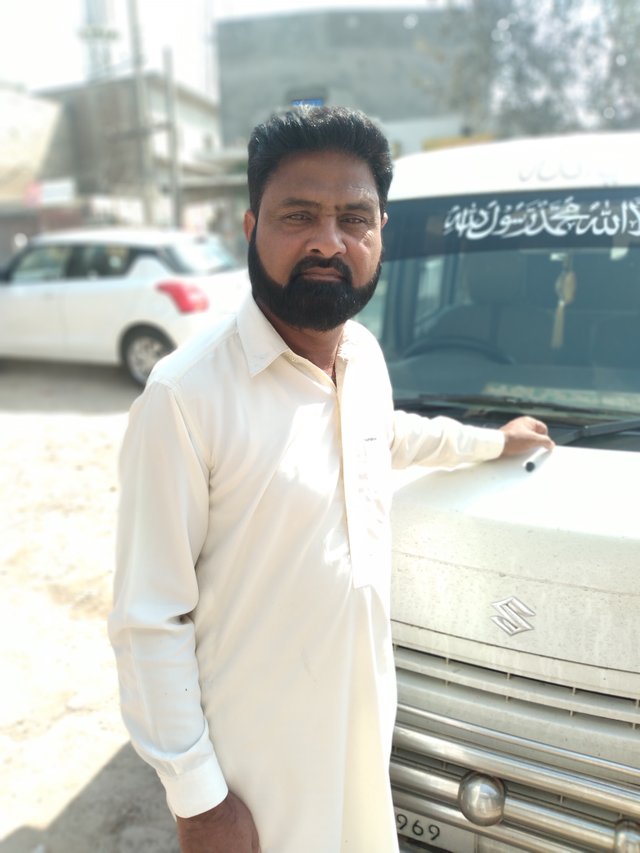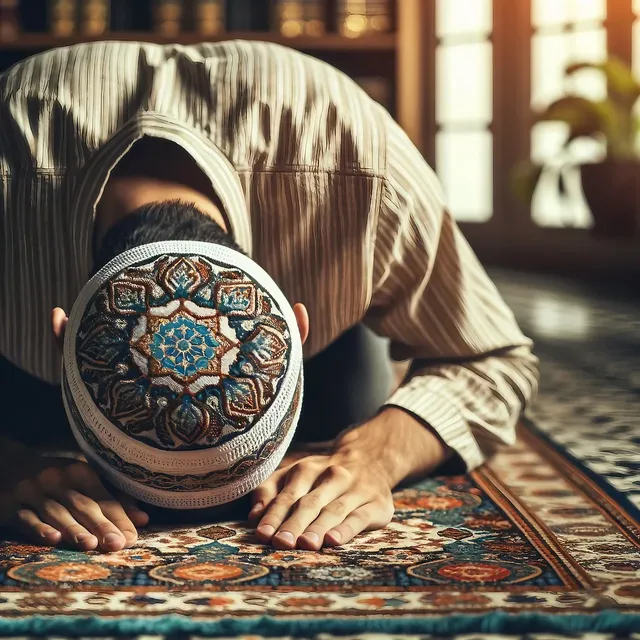The diary game /10/04/2024/About special Eid
| Assalam Alaikum friends, today I will tell you how I spent the day of Eid in Pakistan. |
|---|
Friends, Eid prayers were to be offered in Pakistan.And with that let me tell you what Eid is.Eid is a religious holiday celebrated by Muslims worldwide. There are two main Eid celebrations: Eid al-Fitr, which marks the end of Ramadan (the month of fasting), and Eid al-Adha, which commemorates the willingness of Prophet Ibrahim (Abraham). Both Eids are occasions for prayer, feasting, charity, and spending time with family and friends.As you already knew that Muslims all over the world are celebrating Eid. Likewise, all of us and all my friends were busy preparing for Eid.
Friends, Eid is celebrated in Pakistan with great enthusiasm. On the occasion of moon night, all the people work in their shops all night and prepare for Eid prayers in the morning.As I told you that people work in the evening and at night, in the same way I also worked in my shop all night and after working all night I went very early in the morning to prepare for the Eid prayer. And I go to the mosque to offer the Eid prayer.Friends, when I went to the mosque to offer the Eid prayer, I saw that there was so much rush during the Eid prayer that you would think there was no place to step.
I went to the roof of the mosque to offer the Eid prayer. When I went there, I saw that there were some rows left for the worshipers, which they had arranged on the roof if the worshipers below did not come.So friends, I offered my Eid prayer on the roof of the mosque.
It comes only once in a year, so people try to make it mandatory for us to perform Eid prayers.
In the Eid sermon, Imam Sahib shared a very important thing with us, which I want to tell you.
He said that people face a lot of problems in collecting blood, so those who want to donate blood should register their names in the register of the mosque so that when a brother is in need, they can contact him and ask for blood. should be done.
So I was the first of all those people to raise my hand and I said I want to donate my blood. So I told them my name to enter in the register and my blood group. My group is also negative, so the imam of the mosque apprised me about this and said that the spirit of faith is refreshed after seeing your enthusiasm.

Friends, blood donation is a charity of our body and we should never avoid it, if any friend needs it, we should help him immediately, this is my opinion.Do you agree with my opinion?Every human being should help another human being because every human being is the brother of another human being.Then after some time, Imam Sahib started offering the Eid prayer. After offering the Eid prayer, all of us met each other and shared in each other's happiness.
| Children's Eid. |
|---|
Children's Eid, also known as Eid al-Fitr, is a joyous and significant Islamic holiday celebrated by Muslims around the world.Here's a detailed explanation of Children's Eid:
Meaning and Significance:
Eid al-Fitr translates to "Festival of Breaking the Fast." It's a celebration of the achievements made during Ramadan, including spiritual growth, self-discipline, and increased devotion to Allah.
Observance:
Eid al-Fitr begins with the sighting of the new moon, typically on the first day of Shawwal, the month following Ramadan, according to the Islamic lunar calendar. The exact date may vary depending on the region and the sighting of the moon.
Special Prayers:
The day starts with a special prayer known as Salat al-Eid, performed in congregation at mosques or open grounds. Muslims gather to offer prayers, listen to a sermon, and seek forgiveness and blessings. It's customary to wear new or best clothes for this occasion.
Charity:
Zakat al-Fitr, a form of charity, is obligatory before the Eid prayers. It's a means to ensure that everyone can partake in the celebrations and festivities, especially those in need. Families give a specific amount of food or money to the less fortunate before the prayers.
Festive Atmosphere:
After the prayers, the day is filled with joyous celebrations. Families and friends come together to share meals, exchange gifts, and enjoy each other's company. Special Eid dishes and sweets are prepared, and homes are often decorated to mark the occasion.
Eid Traditions for Children:
Children play a central role in Eid celebrations. They often receive gifts, money (known as "Eidi"), or sweets from elders as tokens of love and blessings. Many families take children for outings or arrange special activities to make the day memorable for them.
Community Spirit:
Eid al-Fitr emphasizes the importance of community and togetherness. It's a time for reconciliation, forgiveness, and strengthening bonds with family, friends, and neighbors. Muslims also visit graves of deceased loved ones to pray for their souls.
Cultural Variations:
While the core rituals of Eid al-Fitr remain the same, there are variations in how it's celebrated across different cultures and regions. Each community may have its unique customs, foods, and traditions, adding to the richness and diversity of the celebration.
Overall, Children's Eid is a time of spiritual reflection, gratitude, and celebration for Muslims worldwide. It brings people together in joyous festivities and reinforces the values of compassion, generosity, and unity within the community.
When I reached home after offering the Eid prayer, the children were ready to receive their Eid. I went home and gave Eid to all my children.
| Love food on Eid. |
|---|
During Eid, women often prepare a variety of traditional dishes that are loved by their families. These dishes vary based on cultural and regional preferences, but some common favorites include:
Biryani:
Biryani is a fragrant rice dish cooked with spices, meat (often chicken, beef, or lamb), and sometimes vegetables. It's a staple during Eid celebrations in many households, cherished for its rich flavors and aromatic appeal.
Kebabs:
Kebabs are popular appetizers or side dishes made from minced meat (such as beef, lamb, or chicken) mixed with spices and herbs, then grilled or fried. They're loved for their juicy texture and savory taste, making them a common choice for Eid gatherings.
Samosas:
Samosas are crispy pastry parcels filled with a mixture of spiced potatoes, peas, and sometimes minced meat. They're deep-fried until golden brown and served as a delicious snack or appetizer during Eid festivities.
Haleem:
Haleem is a hearty stew made from wheat, barley, lentils, and meat (typically beef or mutton). It's slow-cooked with aromatic spices until the ingredients meld together to create a thick, creamy consistency. Haleem is often enjoyed as a main course during Eid meals.
Sheer Khurma:
Sheer Khurma is a sweet vermicelli pudding made with milk, sugar, and dried fruits like dates, raisins, and almonds. It's flavored with cardamom and saffron, giving it a rich and indulgent taste. Sheer Khurma is a traditional dessert served to guests and enjoyed by the whole family during Eid.
Korma:
Korma is a creamy and flavorful curry made with meat (such as chicken, lamb, or beef) cooked in a rich gravy of yogurt, cream, and spices. It's a classic Eid dish that pairs well with rice or bread, providing a comforting and satisfying meal for the festive occasion.
Nihari:
Nihari is a slow-cooked stew made with tender meat (usually beef or mutton), simmered with spices and herbs until it's meltingly tender. It's often served with naan or rice and enjoyed as a special treat during Eid gatherings.
Ras Malai:
Ras Malai is a decadent dessert made from soft cheese dumplings soaked in sweetened, thickened milk infused with cardamom and saffron. It's garnished with chopped nuts and enjoyed chilled, making it a refreshing and delightful end to an Eid meal.
These are just a few examples of the delicious foods that women often love to cook at home during Eid. The specific dishes may vary depending on family traditions, regional customs, and personal preferences, but the spirit of sharing and enjoying flavorful meals with loved ones remains central to the celebration of Eid.
But friends, my wife cooked sweet suya at home.
| Pakistani people's enthusiasm for Eid. |
|---|
Eid holds immense significance in Pakistani culture and is celebrated with great enthusiasm and fervor. The celebration encompasses various aspects, including religious, social, cultural, and familial dimensions.
Religious Significance:
Eid ul-Fitr and Eid ul-Adha are the two major Eid festivals celebrated in Pakistan. Eid ul-Fitr marks the end of Ramadan, the holy month of fasting, while Eid ul-Adha commemorates the willingness of Prophet Ibrahim (Abraham) to sacrifice his son as an act of obedience to God. These occasions are deeply rooted in Islamic traditions, and Pakistan being a predominantly Muslim country, the religious significance of Eid is paramount.
Social and Cultural Celebrations:
Eid is not just a religious festival but also a time for social gatherings, community events, and cultural festivities. People wear new clothes, decorate their homes, and exchange gifts with friends and family members. In Pakistan, it's common for people to give charity (known as Zakat al-Fitr) before Eid ul-Fitr to ensure that everyone can partake in the celebrations.
Special Food Preparations:
Delicious food is an integral part of Eid celebrations in Pakistan. Traditional dishes like biryani, kebabs, sheer khurma (a sweet milk and vermicelli dessert), and various sweets are prepared in households. Families come together to enjoy these meals, reinforcing bonds and creating cherished memories.
Shopping and Markets:
In the days leading up to Eid, markets and shopping malls are bustling with activity as people shop for clothes, accessories, gifts, and festive items. The atmosphere is vibrant, with streets adorned with colorful decorations and lights, adding to the festive spirit.
Eid Prayers and Mosque Gatherings:
On the morning of Eid, Muslims gather at mosques or open spaces for special Eid prayers known as Salat al-Eid. These prayers are an essential part of the Eid ritual, where people come together to offer gratitude and seek blessings.
Family Reunions and Visits:
Eid is a time for family reunions, with people traveling long distances to be with their loved ones. Visiting relatives and friends, exchanging greetings, and sharing meals together are common practices during Eid.
Generosity and Hospitality:
Eid encourages generosity and hospitality in Pakistani culture. People invite neighbors, friends, and even strangers to their homes to share meals and celebrate together. This spirit of inclusivity and kindness adds to the overall joy of the occasion.
Overall, the enthusiasm for Eid in Pakistan is a culmination of religious devotion, cultural traditions, social gatherings, and the spirit of generosity and hospitality. It's a time when people come together to celebrate their faith, strengthen bonds, and spread happiness throughout the community.
| I spent the whole day of Eid in my sleep |
|---|
Friend, as I am telling you that my whole day was spent in sleep because I have been working all night because of the night moon, but still I took time to explain the importance of this day to you. What's up I hope you have understood everything I said very well.
Eid Mubarak
Best: Regards:❤
@abdulhakeem786

Thank you for sharing together in this community. Please upvote with other users until your CSI vote is above 5% so we can provide better support.
x shear
https://x.com/abulhakeem888?t=E-J3VwtnyE1idEJUQrebpA&s=09
Upvoted. Thank You for sending some of your rewards to @null. It will make Steem stronger.
I enjoyed reading your post And in exactly the same way, Muslims celebrate this Eid very much and are very happy on this Eid and waiting for it. And celebrate with full enthusiasm and passion